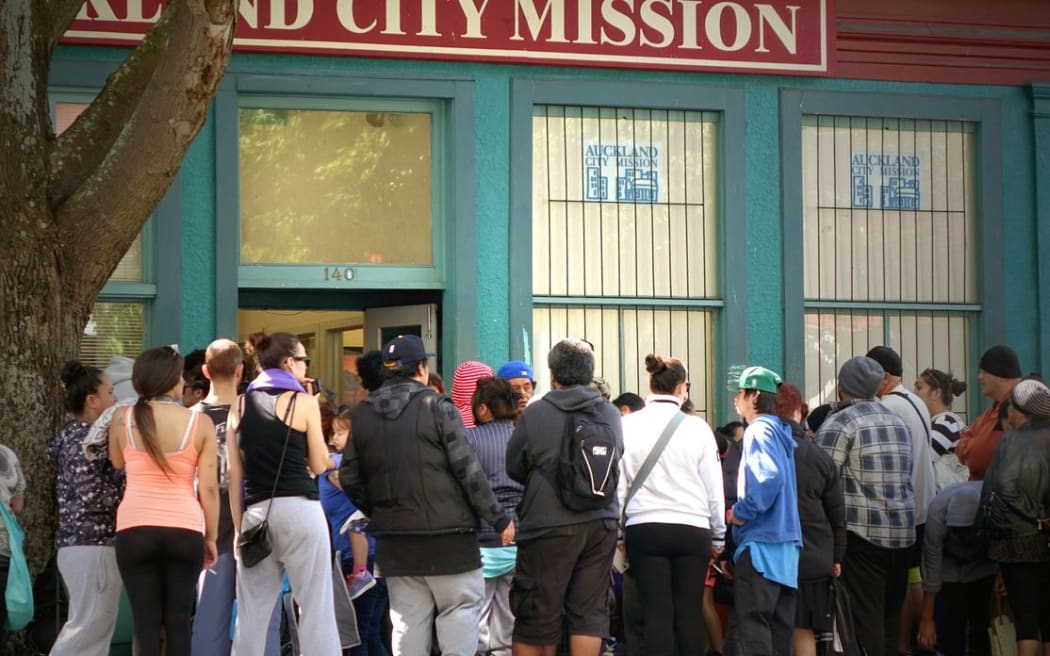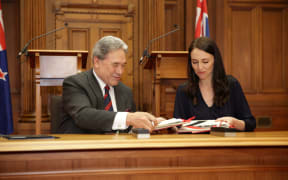A hike to the minimum wage under the new government will make a huge difference to thousands of low-income families, social advocates say.

Working families have been increasingly seeking help from Auckland City Mission and food banks Photo: RNZ / Kim Baker Wilson
Under the Labour-led government, the minimum wage will go up to $16.50 from 1 April, before rising to $20 by 2020.
Auckland City Missioner Chris Farrelly said people on the minimum wage were not currently earning enough to feed their families.
"What we have noticed specifically is the growth in demand for food parcels by people who are working and receiving minimum wages, not just beneficiaries," he said.
"That increase has grown year on year on year over the last few years."
There was one way of knowing if the planned increases would make a difference, Mr Farrelly said.
"If in three years ... the need for food to sustain people on a week-to-week basis, who are already working, was wiped out, I think we'd have something to rejoice in there."
In the meantime, the wage increase would be a big step towards moving a large number of New Zealanders out of the depth of poverty, he said.
People RNZ spoke to in downtown Auckland were overwhelmingly supportive of the change.
One woman said it was "great" that the minimum wage would increase but benefit levels should also be raised.
"Every family needs to be able to feed their kids - young ones that have got young families that are struggling to pay a mortgage, that are struggling to put food on the table, and all they want to do is live the Kiwi dream," she said.
E Tū union national secretary Bill Newson said the businesses he had spoken to were not worried about the change.
"There'll be a few people saying that the sky's going to fall in and it's a disaster [but] employers I've talked to seem fairly relaxed about it. It's good for work, it's good for business also."
Employers had three years to plan for a $20 minimum wage but unions would also be looking for pay hikes for those already on that amount, Mr Newson said
However, Federated Farmers president Katie Milne was worried about the effect on smaller farms.
Her organisation was not opposed to more generous wages, but wanted to know if there might be an exemption for young workers who could be paid a lower youth rate, she said.
"They build a bit of experience and then you get the confidence in them and then you can put them up the scale."
Some farmers may simply go without employees they otherwise would have hired, she said.
"The smaller farms we're talking about here, some of the margins people work on are very tight."







